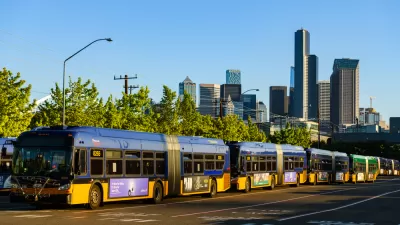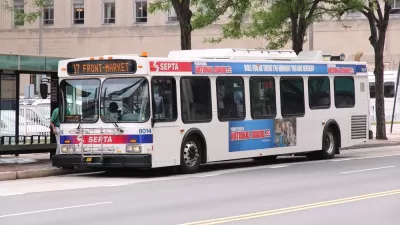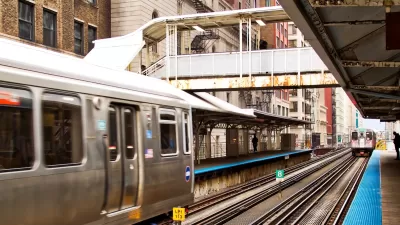An RTA report highlights a need for state funding to bridge an imminent $730 budget shortfall, calling for an approach that relies less heavily on fare revenue.

A report from the Chicago area’s Regional Transit Authority (RTA) highlights the system’s overreliance on fare revenue and recommends additional state funding for free and reduced-fare programs for low-income riders.
According to a Streetsblog Chicago article by John Greenfield, “The RTA, the CTA, Metra, and Pace have at least 15 specialized free and reduced fare programs, such as the RTA's Ride Free and Reduced Fare programs, which currently have 317,000 people enrolled and provided more than 82 million rides last year.” The report asserts that fully funding the Paratransit and reduced fare programs is necessary, but will raise the projected budget gap to roughly $730 million by 2026.
“The RTA report recommends addressing that challenge by creating an income-based reduced fare program called Regional Access. It also calls [for] full state funding of ADA Paratransit and Regional Access, which would help reduce the $730 million budget gap. Lastly, it proposes unlocking collaborative pricing policies across the region by investing in technology and funding reform.” The report also highlights the benefits of a regional fare that would let riders transition seamlessly across systems.
FULL STORY: New RTA Report recommends income-based fare programs

Maui's Vacation Rental Debate Turns Ugly
Verbal attacks, misinformation campaigns and fistfights plague a high-stakes debate to convert thousands of vacation rentals into long-term housing.

Planetizen Federal Action Tracker
A weekly monitor of how Trump’s orders and actions are impacting planners and planning in America.

In Urban Planning, AI Prompting Could be the New Design Thinking
Creativity has long been key to great urban design. What if we see AI as our new creative partner?

Florida Seniors Face Rising Homelessness Risk
High housing costs are pushing more seniors, many of them on a fixed income, into homelessness.

Massachusetts Budget Helps Close MBTA Budget Gap
The budget signed by Gov. Maura Healey includes $470 million in MBTA funding for the next fiscal year.

Milwaukee Launches Vision Zero Plan
Seven years after the city signed its Complete Streets Policy, the city is doubling down on its efforts to eliminate traffic deaths.
Urban Design for Planners 1: Software Tools
This six-course series explores essential urban design concepts using open source software and equips planners with the tools they need to participate fully in the urban design process.
Planning for Universal Design
Learn the tools for implementing Universal Design in planning regulations.
Gallatin County Department of Planning & Community Development
Heyer Gruel & Associates PA
JM Goldson LLC
City of Camden Redevelopment Agency
City of Astoria
Transportation Research & Education Center (TREC) at Portland State University
Jefferson Parish Government
Camden Redevelopment Agency
City of Claremont





























